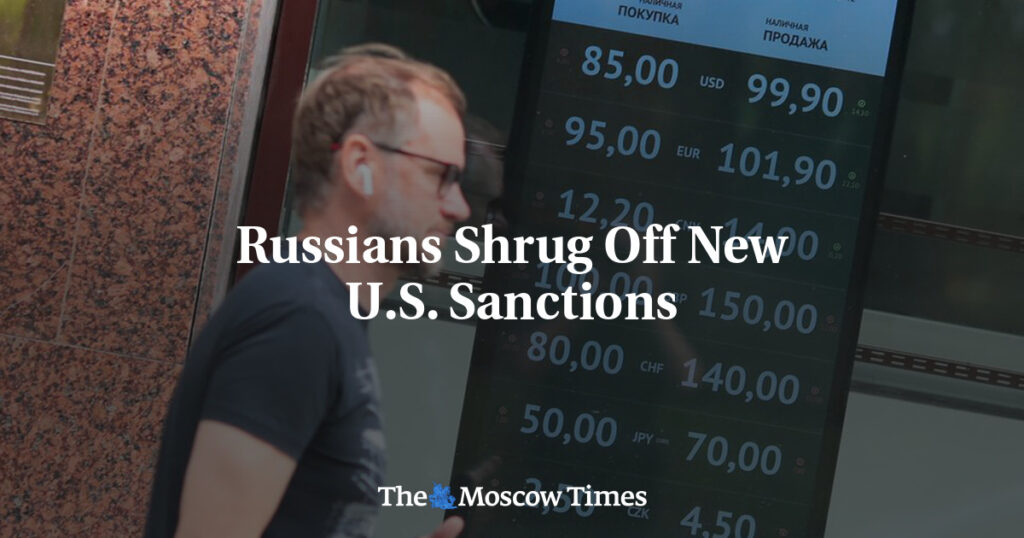The recent introduction of yet another set of U.S. sanctions, compelling Russia’s significant exchange to put a stop to dollar and euro trading on Thursday, caused minimal reaction among Moscow habitants. Some people insisted that the demand for Western currencies is practically non-existent in the face of existing sanctions and rare travels abroad. Yegor Danilov, a 36-year-old engineer in Moscow, is one such individual who disregards the repercussions of the new sanctions on the country.
Despite the Moscow Exchange ceasing dollar and euro transactions, Russian firms and individuals retain the capacity to buy and sell these foreign currencies via banks. The Russian Central Bank vouched for the safety of all dollar and euro deposits. However, this action impedes deals passing through a centralized exchange. Hence, deals would now be conducted in less liquid markets like direct bank-to-bank contracts or via distinct brokers and market makers, potentially resulting in amplified volatility, commissions, and margins.
Historically, any measures that restrict Russians from buying and trading foreign currencies have elicited strong reactions. The community sees the exchange rate on the global stage as a crucial indicator of the Russian economy’s robustness. Upon the imposition of comprehensive financial sanctions by the West, triggered by Russia’s full-fledged invasion of Ukraine in February 2022, there was a financial frenzy. People were queuing at banks, and ATM machines ran out of dollars and euros as the population panicked and started converting their savings into stable currencies.
Despite the pressure of over two years of conflict and sanctions, Russia’s economy has exhibited remarkable resilience, contrary to what some initially anticipated. A majority of foreign exchange dealings on the Moscow Exchange were already being dealt in the Chinese yuan. This economic endurance and strength in the face of Western sanctions have been praised by Russian President, Vladimir Putin. On Thursday, the sentiment echoed among several Muscovites.
The announcement of a new wave of sanctions by the United States spurred some banks into instantly raising their exchange rates, causing a momentary ripple of panic across social media. However, rates soon normalized displaying interbank spread rates, the difference between their selling and buying rates for currency, that were within standard limits. Anton Tabakh, Chief Economist at Expert RA, a Moscow-based credit ratings agency, indicated that economic preparations enabled the mitigation of immediate impacts. Though he also conceded that all operations involving foreign currencies would become slower, more costly, and complicated, resulting in an increase in the overall operating costs.
Any additional costs borne by businesses are passed on to consumers in the form of price hikes, contributing to the country’s already high inflation rate. Despite this, the Russian Central Bank and the Kremlin attempted to assuage public concern. Not everyone was perturbed by the situation – some saw the foreign currency volatility as an opportunity to profit. However, for Yaroslav, an 18-year-old student, Western currencies were the riskier of the options. He was supportive of Moscow’s initiative to decrease its dependence on foreign goods, reaffirming his choice to not invest in foreign currencies due to their current instability.
